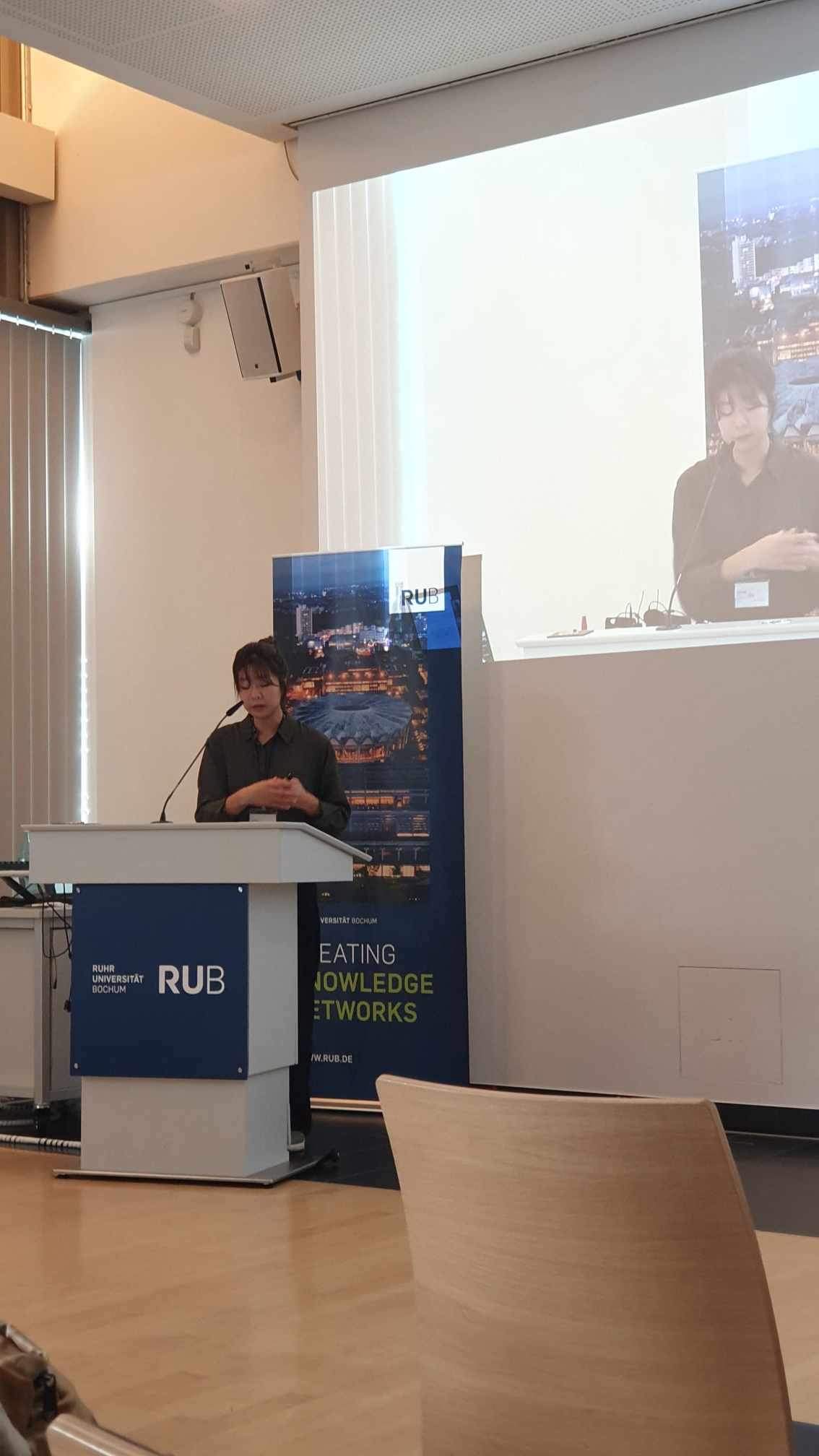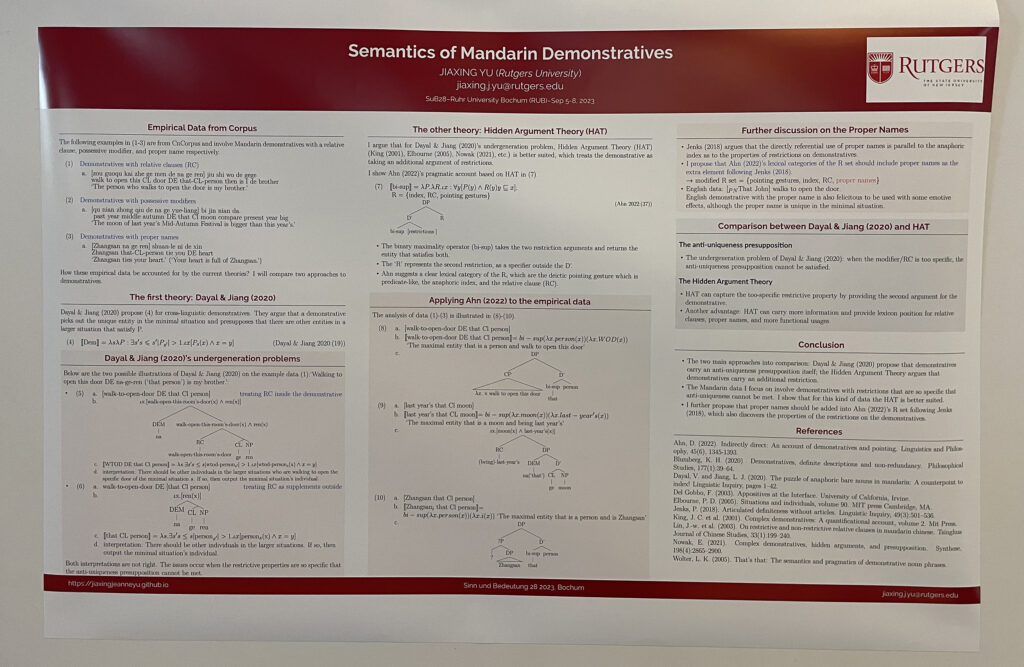Prof. Dorothy Ahn was an invited speaker at Sinn und Bedeutung 28, held from Sept. 5 to 8 at Ruhr University Bochum in Germany. She presented her work, “Deriving (Anti-)Uniqueness in Definite Expressions”. Here is the abstract for her talk:

Definite expressions have been studied extensively in the semantics and pragmatics liter-ature, with different analyses assuming different division lines between what goes in the
semantic restrictions and what is determined through pragmatic means. In this talk, I explore what empirical grounds we can cover by minimizing the semantics, namely assuming that the only semantic content contributed by definite expressions is different kinds of information used to resolve reference. Specifically, I argue that the semantic space of definiteness should be divided along two dimensions, namely the content of the linguistic description and the presence of a linker to the actual world. This division is assumed to be universal, though languages morphosyntactically realize the space in different ways. For example, English marks the presence of the linker with a demonstrative and the absence of it with the definite article the while many languages only mark the presence of the linker overtly. I then discuss the other meanings associated with definite expressions such as uniqueness and anti-uniqueness and explore whether they can be derived through general pragmatic principles. While the question remains open-ended, I discuss the advantages that this view brings for cross-linguistic investigation of definiteness.
Fourth year graduate student Jiaxing Yu also presented a poster at the conference, “Semantics of Mandarin demonstratives”. An abstract is below:
I compare two approaches on demonstratives and show that one of them is better to account for empirical data in Mandarin. Dayal & Jiang (2020) propose that demonstratives carry an anti-uniqueness presupposition itself; the Hidden Argument Theory argues that demonstratives carry an additional restriction. The Mandarin data I focus on involve demonstratives with restrictions that are so specific that anti-uniqueness cannot be met. I show that for this kind of data the HAT is more suited. I further propose that proper names should be added into Ahn (2022)’s R set following Jenks (2018), which also discovers the properties of the restrictions on the demonstratives.
